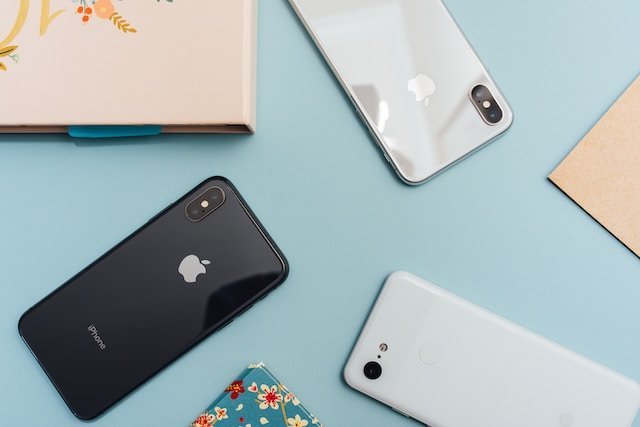A Comparative Analysis: iPhone vs. Android - Exploring Advantages and Disadvantages
Choosing between an iPhone and an Android device ultimately comes down to personal preferences and priorities. While iPhones offer a seamless experience, enhanced security, and optimized performance, Android devices provide more customization options, a diverse app selection, and affordability. Considering the advantages and disadvantages outlined in this article will help you make an informed decision, ensuring your smartphone aligns with your needs and preferences.

In the ever-evolving landscape of smartphones, two dominant players have emerged: Apple's iPhone and the myriad of Android devices available in the market. Both platforms offer unique features and functionalities, which make the decision of choosing between them a matter of personal preference. In this article, we will delve into the advantages and disadvantages of each platform, aiming to help you make an informed decision.
Advantages of iPhone
- Seamless Integration : Apple's closed ecosystem ensures seamless integration between its devices, operating system (iOS), and applications. This offers a cohesive experience, allowing effortless synchronization of data across devices.
- Enhanced Privacy and Security: iPhones are renowned for their robust security measures. Apple's tight control over hardware and software ensures a reduced vulnerability to malware and viruses.
- User-Friendly Interface: The intuitive and user-friendly interface of iOS makes it accessible and easy to navigate, even for those new to smartphones.
- Optimized Performance: iPhones consistently deliver impressive performance with their optimized hardware and software integration. This ensures smooth multitasking and faster app response times.
- Timely Software Updates: Apple consistently releases software updates, providing new features, bug fixes, and security patches. These updates are generally available across multiple device models simultaneously.
Disadvantages of iPhone
- Limited Customization: iPhones offer less customization compared to Android devices. Users have limited control over the appearance and functionality of their devices.
- Higher Price Tag: iPhones tend to be more expensive compared to many Android options. This price differential might deter budget-conscious consumers.
- Closed Ecosystem: While the seamless integration is an advantage, it can limit flexibility. Customization options and compatibility with third-party apps and devices might be restricted.
- Storage Limitations: iPhones offer a range of storage options, but they lack expandable storage slots. This means you may need to rely on cloud storage or higher-priced models to accommodate larger storage needs.
- Restricted App Store: Apple's strict guidelines for app developers can result in a more limited selection of applications on the App Store. Certain apps or services might not be available or have limited functionalities.
Advantages of Android
- Vast Variety of Devices: Android offers a wide range of smartphones from various manufacturers, giving consumers ample choices to fit their preferences and budgets.
- Greater Customization: Android devices allow extensive customization, granting users the ability to personalize their device's appearance, widgets, and system settings.
- Expandable Storage: Unlike iPhones, many Android devices come with expandable storage options, allowing users to add microSD cards to increase storage capacity.
- Diverse App Selection: The Google Play Store offers a vast selection of applications, including those not available on the App Store, giving users more options to meet their needs.
- Versatile File Management: Android's file management system enables users to access and organize files more freely compared to iOS.
Disadvantages of Android
- Security and Fragmentation: The open nature of the Android platform can make it more susceptible to malware and security risks. Additionally, Android's fragmented ecosystem means that software updates may be delayed or not available for older devices.
- Inconsistent User Experience: Android experiences may vary across different devices and manufacturers, leading to inconsistencies in terms of performance and interface.
- Learning Curve: The extensive customization options and settings of Android devices may require a steeper learning curve, especially for those less familiar with technology.
- Bloatware: Some Android devices come preloaded with bloatware, which can be unwanted and consume valuable storage space.
- Lack of Optimization: Android's diverse hardware ecosystem can lead to discrepancies in performance optimization compared to the more hardware-software synergy found in iPhones.
What's Your Reaction?


















